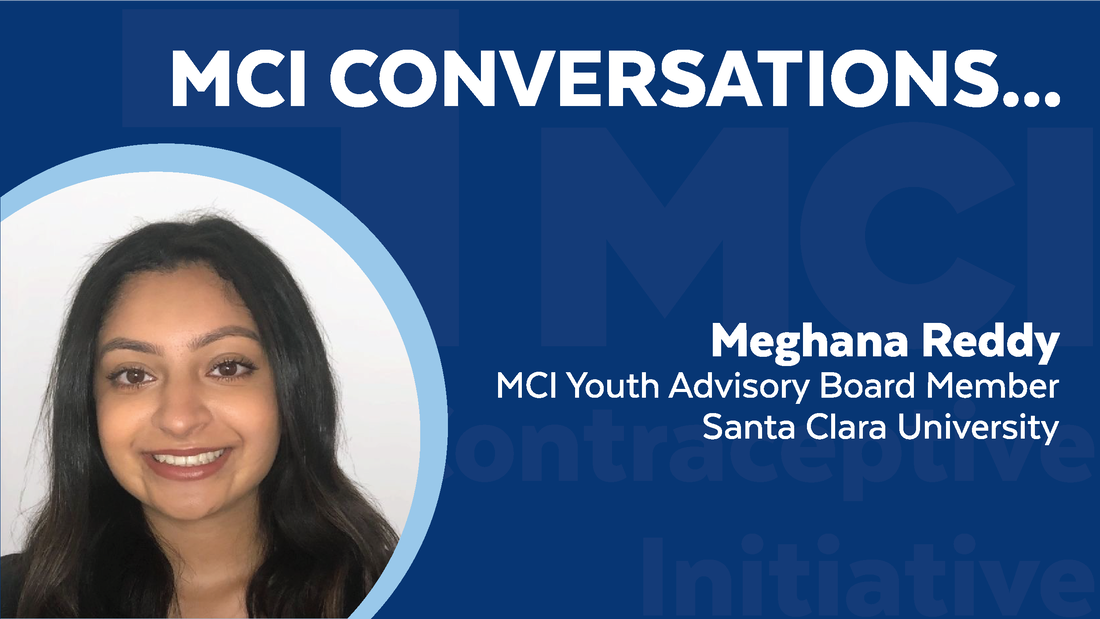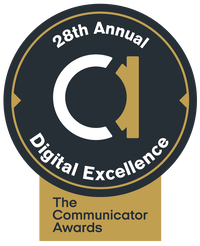|
Our most recent MCI Youth Advisory Board member Meghana Reddy sat down with us to discuss her motivation in joining the board and her interest in male contraception. This blog post shares highlights from that conversation. In 2021, I decided that I wanted to start my own company focused on providing non-hormonal contraceptive options for women. Before starting my business, I created my own research protocol, and was able to interview over 50 individuals about the perspectives of contraception, sexually transmitted infections (STI)s, and the stigma surrounding sexual health. Because of the responses I received, I reached out to plenty of contraceptive pioneers, and was able to connect with Heather Vahdat, the Executive Director of Male Contraceptive Initiative (MCI). Through Heather, I was exposed to MCI's Youth Advisory Board (YAB), and decided it was the right fit for my interests and previous experiences. When I was conducting my personal research, I did not meet a lot of individuals that had an immense interest in contraception, until I met the individuals in the YAB. After joining the YAB in February 2021, I was able to learn more about new male birth control methods. In my research, I found that many women felt that the pressure of birth control was placed on them versus their partner. Joining the YAB at MCI helped me learn more about the innovations in the pipeline for men to use as well. As a current pre-medical student, I am able to learn more about the new companies that are being funded in the contraceptive space, as I also hope to create an innovative company in this space. While at the MCI, I have assumed the role of Vice Chair for the MCI YAB, and have learned more about the grant-writing process; we just finished giving out our first research grant for college individuals. Since I am thoroughly interested in contraceptive research and medical research in general, I am excited to learn more about the new groundbreaking research in this field. Based on my personal research, I believe that the biggest challenges affecting contraception surround stigma, and lack of education. Many people do not like to have conversations about contraception, possibly because of judgment from others, certain assumptions that might be made, or simply because it can be an uncomfortable topic to converse about. Additionally, many individuals, who receive sex education in their middle or high school, do not fully remember what they were taught, and add that this education was not thorough enough. With male contraception, I think the burden of contraception has been unfairly placed on women, and now, in the current generation, we are finally starting the conversation of contraception for men, making the topic of contraception equal for both partners. I hope that more innovative contraception can be developed for men that is both affordable and convenient to use. The options that are on the market currently for men are very costly, short-term focused, and not always effective; there are not enough long acting reversible options. In order to make new innovative contraceptive options a reality, the conversation around contraception, specifically male contraception, needs to be initiated at a young age, such as when students typically receive sex education. Sex education needs to be more robust, and should highlight various sexual infections both men and women can get from unsafe intercourse, bring attention to possible contraceptive methods—besides only condoms—for men and women, and share medical advice from verified gynecologists and urologists. Being a part of MCI has helped me have a platform to educate others around me about contraception; in addition to the personal research project I conducted, I am also the Director of Strategy of Medical Herstory, a non-profit surrounding the elimination of sexism and stigma from health experiences. Currently, in my university, I am the President and Editor-in-Chief of a women’s college magazine, where I specifically write articles focused on contraception, gynecology, and reproductive health. I hope to make more of an impact in the future as a certified medical professional, such as an OB/GYN or Reproductive Endocrinologist, focused on bringing attention to reproductive health and women’s health through research and patient care. Contact us if you’re interested in joining or engaging with our Youth Advisory Board!
0 Comments
Your comment will be posted after it is approved.
Leave a Reply. |
Categories
All
Archives
June 2024
|
|
|
Donate to Male Contraceptive InitiativeYour generous donation makes a difference!
|
© Male Contraceptive Initiative. All rights reserved.


 RSS Feed
RSS Feed
